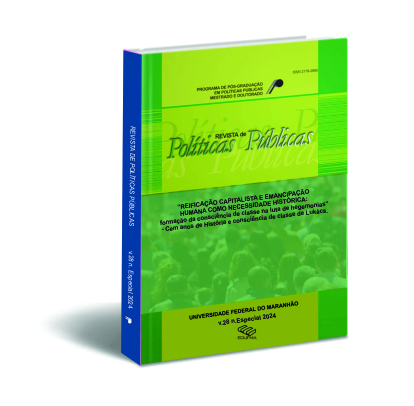EL CHILE DE ALLENDE Y EL SOCIALISMO DEL SIGLO 21
DOI :
https://doi.org/10.18764/2178-2865.v28nEp.2024.9Mots-clés :
Chávez, Cuba, Allende, Estado, ImperialismoRésumé
Hasta la elección de Salvador Allende en 1970 y la experiencia de la Unidad Popular en Chile, la estrategia política dominante de transformación revolucionaria en América Latina era el modelo cubano, es decir, la toma del poder por medio del asalto armado seguido del desmantelamiento del estado burgués y así proceder a la construcción del socialismo. El brutal golpe de estado que derrocó su gobierno y asesinó a Allende en 1973 pareció confirmar que la ‘vía pacífica al socialismo’, es decir, a través del voto, conducía al fracaso y la derrota, legitimando la vía cubana. La revolución Sandinista de julio de 1979 de manera lapidaria también pareció confirmar que el único camino para la transformación revolucionaria socialista era la cubana… hasta 1990, cuando el Sandinismo fue derrotado en las urnas, luego de una guerra de desgaste de casi diez años de duración. Por ello, el paradigma cubano, ratificado por estas dos derrotas, la primera histórica y la segunda, que se percibía como definitiva, fue, repentinamente ‘destronado’ de su primacía aparentemente inexpugnable, por el fenómeno bolivariano liderado por Hugo Chávez en Venezuela en 1998. La cuestión clave que estos procesos políticos tienen en común es la necesidad imperiosa del desarrollo de un estado que no solo permita la construcción de una economía socialista – proceso complejo y lento determinado por el carácter subdesarrollado de las economías latinoamericanas – sino uno en el cual se ejerza el monopolio legítimo de la violencia en el territorio nacional, no solo para hacer cumplir las decisiones en favor de la mayoría del pueblo, sino que defenderlas tanto de los inevitables ataques de las clases dominantes, otrora en el poder, como defender la soberanía nacional de los también inevitables ataques del imperialismo, especialmente de Estados Unidos. No cabe duda que la ‘pacifica, pero no desarmada’ (en la acertada frase de Hugo Chávez) revolución bolivariana ha estructuralmente transformado la naturaleza de clase del estado venezolano, por medio de elecciones, sin tener que recurrir al modelo insurreccional cubano. En otras palabras, para combatir exitosamente el capitalismo neoliberal, la cuestión a resolver es en el interés de qué clase social el estado ejerce el monopolio legítimo del poder en el territorio de una nación.
Téléchargements
Téléchargements
Publié-e
Comment citer
Numéro
Rubrique
Licence

Cette œuvre est sous licence Creative Commons Attribution - Pas d'Utilisation Commerciale - Pas de Modification 4.0 International.
UNIVERSIDADE FEDERAL DO MARANHÃO
PROGRAMA DE PÓS-GRADUAÇÃO EM POLÍTICAS PÚBLICAS
REVISTA DE POLÍTICAS PÚBLICAS
Termo de Transferência de Direitos Autorais
Como condição para a submissão, os autores devem declarar a autoria do trabalho e concordar com o Termo de Cessão de Direitos Autorais, marcando a caixa de seleção após a leitura das cláusulas)
- Declaro que participei da elaboração do trabalho referido, em parte ou no todo; que não omiti qualquer ligação ou acordo de financiamento entre os autores e instituições ou empresas que possam ter interesses na publicação desse trabalho;
- Declaro tratar-se de texto original, isento de compilação, em parte ou na íntegra, de minha autoria ou de outro (os) autor (es);
- Declaro que o texto não foi enviado a outra revista (impressa ou eletrônica) e não o será enquanto a possibilidade de sua publicação esteja sendo considerada pela RPP;
- Declaro que transfiro os direitos autorais do trabalho especificado para a RPP, comprometendo-me a não reproduzir o texto, total ou parcialmente, em qualquer meio de divulgação, impresso ou eletrônico, sem prévia autorização dessa Revista.
- Declaro que tenho conhecimento que a cessão do texto à RPP é gratuita e, portanto, não haverá qualquer tipo de remuneração pela sua utilização.

Este obra está licenciado com uma Licença Creative Commons Atribuição-NãoComercial-SemDerivações 4.0 Internacional.







